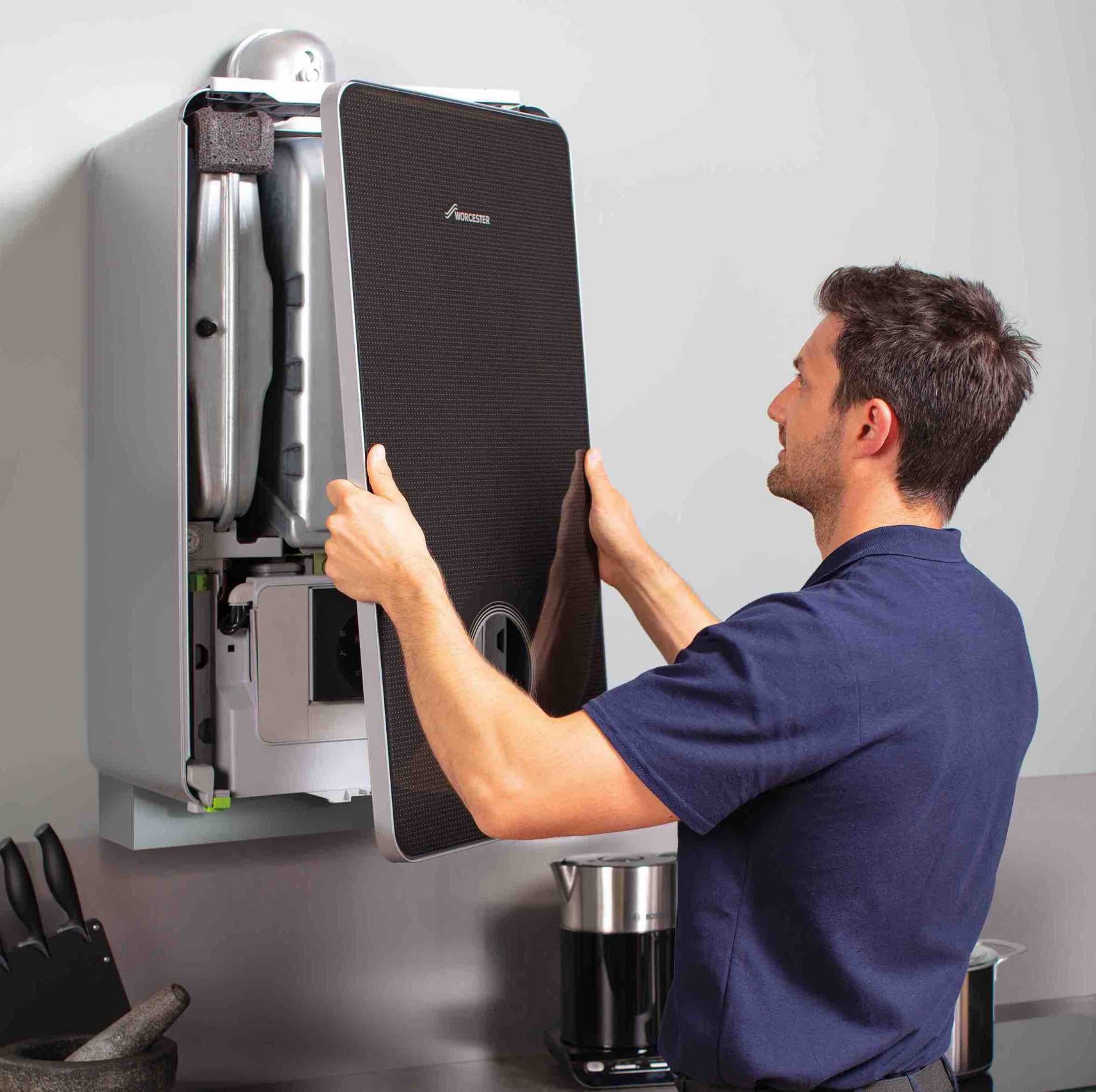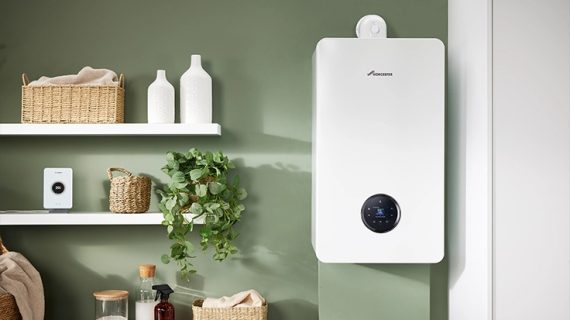Should I repair or replace my boiler?
Boilers are one of the most intensively used but underappreciated household appliances. Until something goes wrong, that is, leaving us without heating and hot water. A boiler breakdown can be highly stressful, especially during the winter months, as we realize just how reliant we are on them. A newer model can usually be repaired quickly, but when a boiler reaches a certain age and starts to have issues, replacing it could be the best course of action. Even if it has been going strong for years, at some point, it will fail.
Typically, an older boiler will lack efficiency due to its age and outdated technology. So you may experience longer waiting times for your central heating to kick-in or your hot water to heat up to an appropriate temperature.
There’s also the issue of parts being discontinued. Most manufacturers will discontinue the production of spares and accessories for a boiler after ten years. So for an older boiler, you need to double-check a repair is possible due to the potential lack of parts. Along with peace of mind, an upgrade will save you money on your utility bills. Your boiler could be the main driver behind sky-high monthly energy bills.
So, with all this in mind, when is it time to cut your losses, bite the bullet and fork out for a brand-new boiler? Or should you spend a few hundred pounds on repairs and hope it lasts through the winter?
Is your boiler still under warranty?
First things first. It’s always worth a call to the manufacturer in the event of a problem with your boiler. Many newer boilers will be covered with a warranty, sometimes for up to 10 years, depending on the make. This covers the cost of replacement parts and may even cover labour costs in some cases.
Will a DIY fix do the trick?
Next. If your boiler is playing up or suddenly stops working, there are several common issues you can check straightaway before calling out an engineer:
- Bleed your radiators. If air has made its way into the system, cold pockets form and radiators don’t get as warm as they should.
- Check all your radiators for leaks. Any leak in the system can depressurize your boiler and cause it to stop heating.
- Check the pressure gauge on your boiler controls. If it drops below a certain level, the boiler will stop working, and you may need to repressurize the system.
- Ensure the thermostat is set to the correct temperature, and if you have a smart thermostat, check that it’s still correctly connected to the boiler.
- Thaw a frozen condensate pipe with some warm water.
If none of these DIY fixes works, though, it’s time to call in an expert.
Four warning signs
Be aware. The following issues could spell the end for your boiler, so if any of these apply, you need to contact an engineer ASAP to talk through the options:
Radiators are taking longer to heat up
Do your radiators stay tepid or take hours to get hot? Is your water not heating up as quickly or getting as hot as it used to? Most modern boilers reach their maximum temperature quickly and produce heat almost instantly. If this isn’t happening, it could mean your boiler is on the way out. It could also mean your central heating system is filled with sludge. Dirty water circulating in the system could result in long-term problems with your boiler, so it’s time to get an engineer out to talk you through whether a boiler service and system flush might help or whether a complete replacement is on the cards.
The boiler is making funny noises
Your boiler will make a noise when firing up, but this should be no more than a low and constant hum that most of us won’t even notice. Banging, whistling, gurgling, clunking and whirring are not sounds you want to hear, as they could indicate several issues, from a broken valve to pump problems or general wear and tear.
Leaking or dripping from the boiler
If puddles appear around your boiler, you should take immediate action. Internal parts may be faulty or have started to disintegrate. A leak can lead to further problems, such as rust and corrosion, as well as structural damage to your home. And your heating will become increasingly inefficient.
The boiler is giving off a bad smell
A healthy boiler shouldn’t emit any odour. Any faint smells could indicate a carbon monoxide leak – carbon monoxide itself is odourless, but a scent could be created because the leak is causing the boiler not to burn properly. Other signs that shouldn’t be ignored are:
- Dark soot staining on and around the appliance
- A yellow flame instead of a crisp blue flame
- The pilot light frequently goes out
- Increased condensation inside windows
Additional consideration
Energy efficiency. Since October 2010, any new boiler installed in a domestic property must be condensing and at least 88% efficient due to the government’s commitment to reduce carbon emissions. Ideally, you should update to an A-rated boiler, as these provide over 90% efficiency.
Cost efficiency:
You can make a significant saving on your energy bill by installing a new boiler. Once you consider this along with repair costs, the case for replacing your boiler becomes more compelling.
Space-saving;
Most modern boilers are more compact and fit into smaller spaces. If you invest in a combi boiler, you will no longer need water tanks, which could free up quite a lot of space in a loft conversion, for example.
Controls:
Modern boilers have smart heating thermostats that allow you to precisely time your heating and hot water, enabling further cost savings.
Safety:
If your boiler is old, it may not meet current guidelines for boiler safety and operation. Even if an engineer can fix a fault, it may still be potentially unsafe and prone to problems. It could even be at risk of producing carbon monoxide.
Summary
It can be difficult to discern whether your old boiler needs to be repaired or replaced. If you have a newer boiler that has previously been reliable, a simple repair is the most cost-effective and efficient way of getting your heating back up and running.
However, if your boiler is old, out of warranty, or potentially dangerous, you should consider replacing it immediately. Frequent breakdowns can be stressful, particularly in the winter, so consider whether you’d rather avoid this and replace your boiler with a new model that’s likely to be much lower maintenance.
If you’re still unsure whether there’s life left in your old boiler, speak to the MHL boiler advice team. They’ll be able to provide you with some advice to weigh up the options. Call 0800 061 4567 or info@mhlservices.co.uk
Click here to get a fixed new boiler quote within


